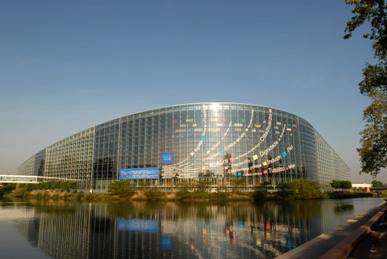Elections of the European Parliament
Elections for the members of the European Parliament are held once every five years. There is no uniform electoral procedure for the European Parliament within Europe, nor do the elections take place on the same day in all Member States. The election for the Dutch members of the European Parliament will be held on 6 june 2024.

The municipal executive of each municipality is responsible for the organization of the elections.
Eligibility to vote
A voter must meet the following requirements to be entitled to cast a vote in the elections for the European Parliament:
- the voter must possess Dutch nationality or the nationality of one of the other Member States of the European Union
- the voter must be 18 years of age or over
- the voter may not be debarred from voting
The requirements for standing for election to the European Parliament are the same as the requirements for being entitled to cast a vote. Dutch nationals residing in another Member State of the European Union have a choice of participating in the Dutch elections to the European Parliament or in the elections of the Member State where they reside. As of the 2009 elections, Dutch nationals residing in the Caribbean part of the Netherlands are also eligible to vote for the European Parliament.
Registration of political parties
Political parties desiring to participate in the elections to the European Parliament under a particular name (legally referred to as: appellation) are required to have this appellation registered with the Electoral Council. Appellations registered for the elections for the Dutch House of Representatives are not automatically also registered for the elections of the members of the European Parliament.
Nomination
On nomination day, all political parties submit their list of candidates to the central electoral committee: the Electoral Council. The Netherlands constitute one single electoral district for the purposes of the elections to the European Parliament. This means that only one list of candidates is submitted, together with – if applicable - thirty declarations of support. When drawing up their list of candidates, political parties may make use of the Election Supporting Software (ESS).
Polling stations
Polling stations are open from 7.30 a.m. to 9.00 p.m. Only special polling stations may open their doors at an earlier time. No station may be open after 9.00 p.m. As many polling stations as possible, but no fewer than 25% of the total number, must be in buildings accessible to voters with a physical impairment and be in a location that is easy to reach for such voters.
Casting a vote
Everyone eligible to vote receives an invitation to cast their vote sent to their home address no later than fourteen days prior to election day. This invitation includes their poll card. The poll card allows the voter to cast their vote in the polling station of their choice within the municipality's borders. Holders of a voter card may cast their votes for the members of the European Parliament anywhere in the Netherlands. A Dutch voter residing abroad who is no longer registered in the Dutch Base Registry Persons, may cast their vote from abroad by letter.
Voting by proxy
Voters unable to cast their vote in person on election day may have their vote cast by proxy.
Identification
All voters casting their vote must show identification to identify themselves. Any such identification must not have been expired by more than five years.
Election results
The European Commission prescribes that publication of the election results must wait until all Member States have held their elections, so as not to unduly influence the elections in other Member States. The official results are determined by the Electoral Council in open session approximately one week after the elections. The result of the elections to the European Parliament are stored in the Electoral Council's election results database.
Appointments
The Dutch members of the European Parliament are appointed by the Electoral Council. Once it has been determined that a particular candidate was elected, the European Parliament assesses whether this candidate may hold a seat as a member of the European Parliament, since not all positions held by candidates can be reconciled with membership of the European Parliament. The question whether being both a member of the European Parliament and of the Dutch Upper House or House of Representatives is incompatible, for instance, is assessed following the elections.
Overview of the elections to the European Parliament
The first elections to the European Parliament were held in 1979. At that time, the European Parliament was still composed of 410 members, representing the nine EC Member States (Belgium, the Netherlands, Luxembourg, France, Italy, Germany, Ireland, the United Kingdom, and Denmark). At present, the European Parliament is composed of 751 members (i.e.: seats), representing 28 Member States. Every Member State is represented by a fixed number of members of parliament. This number is related to the population of that State. The Dutch EU citizens are represented by 26 members of the European Parliament. Each Member State elects its own representatives in the European Parliament. The European Parliament is not composed of separate national parties, but of European parties. Such European parties are often groupings of national parties from (at least) six Member States.